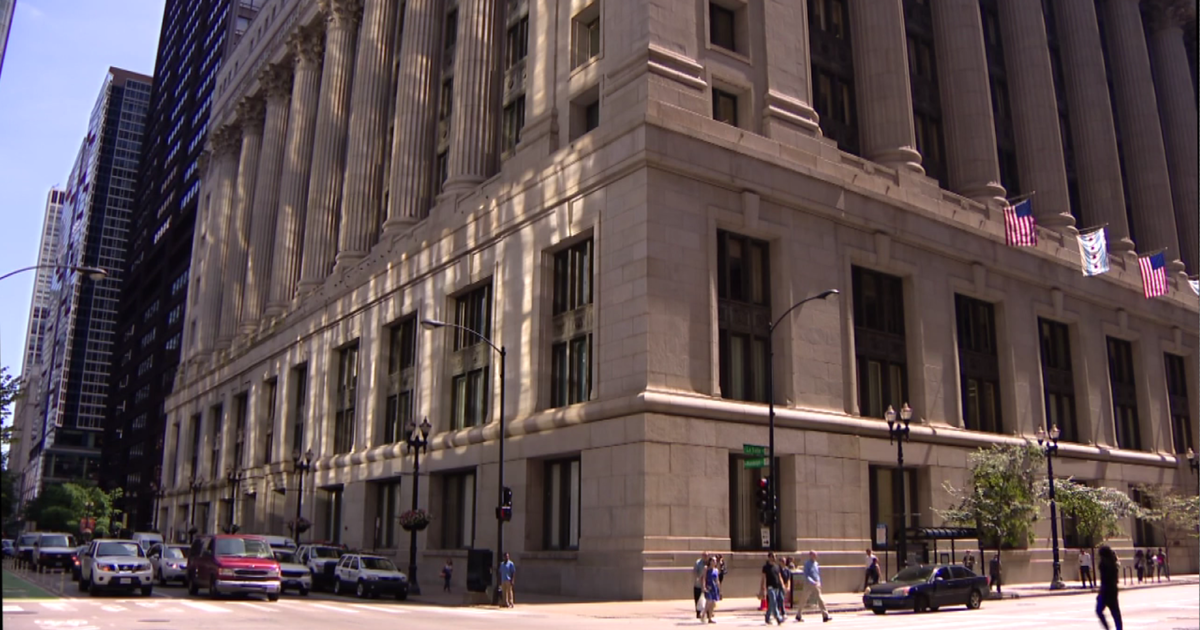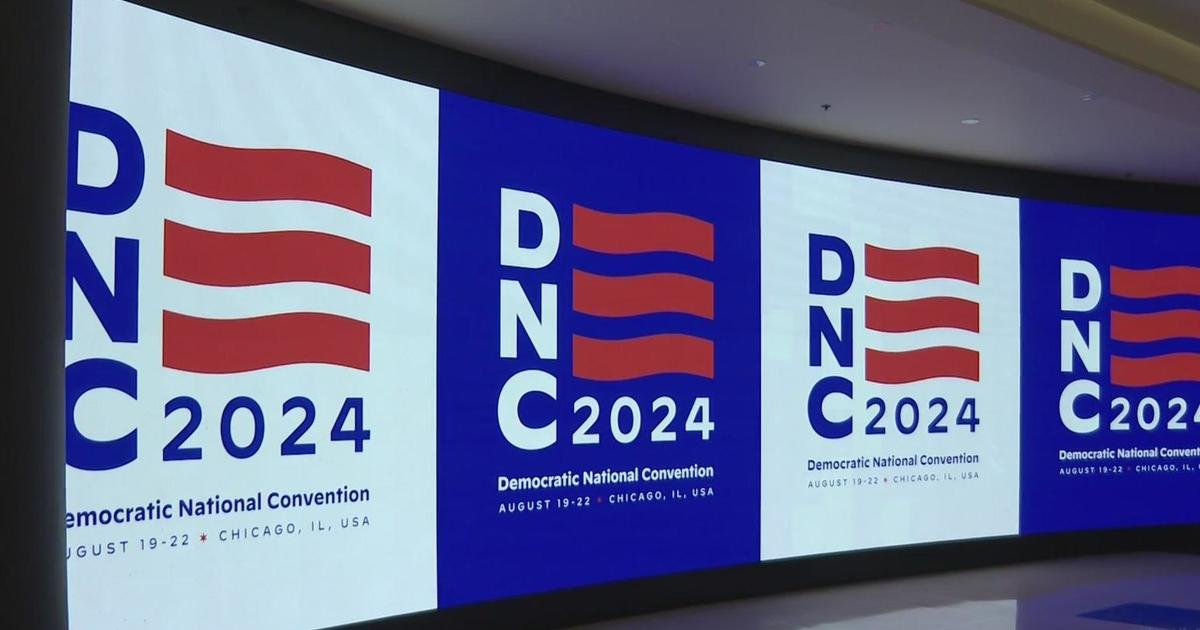Lightfoot's $16.4 billion budget plan for 2023 advances, set for full City Council vote next week
CHICAGO (CBS) -- Aldermen paved the way on Wednesday for the City Council to sign off on Mayor Lori Lightfoot's $16.4 billion budget plan for 2023 next week, a day after some of them balked at a proposal to reduce several fines, including penalties for parking in bike lanes.
The Budget Committee voted 18-12 on Wednesday to approve the mayor's spending plan, while the Finance Committee voted 21-8 to approve the so-called "revenue ordinance," which outlines various fees and fines charged by the city.
A day earlier, after approving the mayor's proposed $1.7 billion property tax levy for 2023, the Finance Committee had delayed a vote on the revenue ordinance, after learning it would include reducing the cost of several parking fines, including for blocking bike lanes.
Assistant Corporation Counsel Mark Siegel said a recent Illinois Appellate Court ruling determined that state law limits penalties for various parking offenses to a maximum of $250.
The city currently fines vehicle owners $250 for offenses such as blocking bike lanes, having tinted windows, or having an obscured license plate, and adds a $250 late fee if those tickets aren't paid on time. Siegel said the Appellate Court ruling means the city can only charge a total $250 fine, including any late fees, and the Illinois Supreme Court has refused to take up the case.
Ald. Brendan Reilly (42nd) said Tuesday the city has invested millions of dollars in building out designated bike lanes, and that alderpersons' offices have been bombarded with complaints about illegal parking in those bike lanes. He also noted deaths for bicyclists have spiked since 2020.
"This is a chronic and consistent problem. We've been asking for increased enforcement. It has not shown up," he said. "What is the wisdom in reducing the fine for something that could potentially kill people."
Siegel warned that if the City Council does not reduce those parking fines to comply with the Appellate Court ruling, the city would be vulnerable to further costly litigation.
"It would be illegal for us to issue these [$500] fines under the court's ruling," Siegel said Tuesday.
After Finance Committee Chair Ald. Scott Waguespack (32nd) delayed the vote on the revenue ordinance by a day, aldermen approved it on Wednesday, with a pledge from the Lightfoot administration to work with them to lobby state lawmakers to change state law to approve a $500 cap on those parking fines – either during this month's veto session, or the regular session next year.
Some aldermen had previously suggested not changing the city's parking ticket fines before lobbying Springfield to take action, but Waguespack and city attorneys have said that would put the city at risk of further litigation if state lawmakers don't act right away.
Ald. Roderick Sawyer (6th) suggested that, going forward, rather than simply doubling most parking ticket fines when the vehicle owner doesn't pay up on time, the city consider "something a little bit more reasonable and palatable," such as charging a 1.5% monthly penalty until the fine is paid.
Meantime, before Wednesday's committee votes, Lightfoot also agreed to tweak her plan for creating a new Office of Climate and Environmental Equity, making it separate from the mayor's office, and expanding it from 6 employees to 10.
The office will be tasked with helping the city to tackle issues related to pollution and climate change, while conducting a feasibility study on resurrecting the city's Environment Department, which was disbanded under former Mayor Rahm Emanuel.
Budget Director Susie Park said that study will be due by June 2023, with the goal of including a full-blown Environment Department in the city's 2024 budget plan.
The mayor's move still wasn't enough to satisfy critics on the City Council, who said they've been waiting for nearly four years for Lightfoot to make good on her 2019 campaign promise to bring back the Environment Department.
Ald. Carlos Ramirez Rosa (35th) pointed out that, in a January 2019 tweet during her run for mayor, Lightfoot wrote, "We've got to bring back the Department of Environment to combat climate change and ensure that Chicagoans have clean air to breathe and safe water to drink, no matter their race, economic status or zip code."
Ramirez-Rosa said it was "disingenuous" and "disrespectful" to now ask Chicagoans to wait another year before fulfilling her campaign pledge.
"We've had four years to get the Department of Environment done. This was a central piece of a policy platform promised to the people of Chicago. People who wanted to undo the harm caused by eight years of Rahm Emanuel," he said.
Ramirez-Rosa also noted that the mayor's proposed Office of Climate and Environmental Equity will have only 10 employees, while her press office has 15, accusing the mayor of having misplaced priorities.
Park defended the approach the administration is taking, saying they want to take the time to study how departments in similar cities currently operate, to make sure they are adopting the best practices in Chicago, and to bring back together inspectors and other former Environment Department positions that were absorbed by other city departments when Emanuel did away with the Environment Department.
"We want it to be a robust department," Park said.
During the public comment period before Wednesday's budget committee meeting, several people also urged aldermen to adopt a pilot program for a municipal sidewalk snow removal program; to have city workers clear sidewalks after it snows, rather than leaving it up to each individual homeowner or business owner.
They're asking the city to allocate $750,000 in 2023 for a pilot program to determine the feasibility of a citywide sidewalk snow removal program.
Activists with Access Living, Better Streets Chicago, and other supporting organizations rallied at City Hall ahead of the Budget Committee meeting, saying that leaving sidewalk snow and ice removal up to property owners doesn't work, and it's a big hazard for anyone with mobility challenges – including the elderly and disabled.
No such program is included in the 2023 budget plan, though a handful of aldermen have voiced support for one.
The mayor's budget plan will now be presented to the full City Council on Friday, with a final vote scheduled for Monday.
For the first time since she took office, Lightfoot did not seek an increase in property taxes in her budget plan, after reversing course earlier this year on plans for a 2.5% property tax hike, which would have amounted to $42.7 million, or about $34 a year for the owner of a $250,000 home.
Two years ago, Lightfoot convinced aldermen to approve annual property tax hikes tied to the consumer price index, but capped at 5% a year. During her August budget forecast, Lightfoot said she would only seek half that amount, but later abandoned that plan when it became clear aldermen would not support a tax hike.
In announcing she'll skip plans for a property tax hike in 2023, Lightfoot said she is only planning to forgo the annual property tax hikes for one year.



